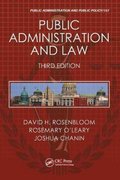Economics
QUESTION 1 (20) Rising energy prices could lead to rate hikes in South Africa Rising energy prices are fuelling inflation expectations in South Africa, prompting traders to bet that rate increases are on the cards this year even as the economy remains in the doldrums. Brent crude oil, which determines South African gasoline prices, climbed to the highest since May 2019 on Wednesday. Together with an expected increase in electricity tariffs, that's pushed breakeven rates - seen as a gauge of bond traders' outlook for price rises - to the highest since April 2020. The South African Reserve Bank has cut its policy rate five times since the beginning of last year to a record low to support an economy that contracted the most in nine decades last year. Going Up South African inflation expectations have climbed to April 2020 highs Five-year breakeven rate -5.D -4.5 wBloomberg -4.0 Percentage point -3.5 AN -3.0 +2.5 Feb Apr Hay Jun Jul Aug Sep Oct Nov Dec Jan Feb 2020 2021 Bloomberg South African inflation quickens first time in three months Price pressures, together with rising US Treasury yields, may force the central bank's hand. Bond yields also suggest traders are positioning for rate hikes, with the curve bear steepening as short-end yields rise faster than longer-term ones. Yields on local-currency government bonds due February 2023 have climbed for 11 consecutive days, adding 18 basis points to trade at 4.82% as of 11:41 in Johannesburg Wednesday. That's the highest since July. Those on bonds maturing in 2040 have climbed 13 basis points in the same period. Rising energy prices are fuelling inflation expectations in South Africa, prompting traders to bet that rate increases are on the cards this year even as the economy remains in the doldrums. The massive loss of jobs and livelihoods because of COVID-19 has not only exacerbated unemployment, which stands at 42%, when counting discouraged work seekers, but has also worsened poverty levels, with data from Statistics South Africa reporting more than half of South Africa's population living in poverty. The pandemic has also shown the necessity of basic income support, in the form of monthly cash payments, to working-age adults with no or little income. South Africa has an extensive social grant programme which provides income support to over 18 million of the most vulnerable: the elderly, children, and people with disabilities. South African president Cyril Ramaphosa has announced a three-month extension of a special R350 (US$24) a month COVID-19 grant for unemployed adults who do not receive any social grant or unemployment insurance Adapted from : https://businesstech.co.zaews/energy/468906/rising-energy-prices-could-lead-to-rate-hikes-in-south-africa/ and https://theconversation.com/south-african-president-extends-special-covid-19-grant-why-this-is-not-enough-153942 Thoroughly discuss inflation expectations as a cause of inflation and how closely aligned are people's 1.1 expectations with the inflation objective the SARB wants to achieve? Based on the extract above, should the SARB hike the repo rate in the indicated quarters?, Also taking into 1.2 consideration the increased inflation expectations, describe the costs of inflation, particularly as to how the 18 million grant recipients will be affected







